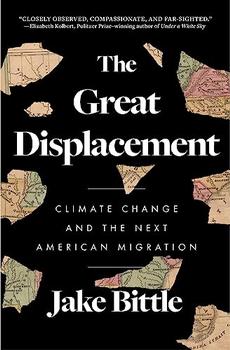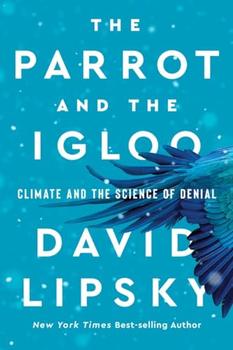Summary | Excerpt | Reviews | Beyond the book | Read-Alikes | Genres & Themes | Author Bio

Critics' Opinion:
Readers' Opinion:
First Published:
Feb 2023, 368 pages
Paperback:
Feb 2024, 368 pages
 Book Reviewed by:
Book Reviewed by:
Elisabeth Herschbach
Buy This Book
On August 4, 2021, California's largest single wildfire to date torched through the small mountain hamlet of Greenville in the northeastern part of the state, reducing the historic Gold Rush town to ashes in less than an hour. Before it was finally extinguished that October, the so-called Dixie Fire had become the first known wildfire to cross the Sierra Nevada mountains and the most expensive wildfire in United States history, burning a total of 963,309 acres (about 1500 square miles) across five counties—an area larger than the state of Rhode Island—and driving thousands of residents from their homes.
The Dixie Fire was far from the only natural disaster to strike that summer. Uncontrollable wildfires erupted across the country. Cataclysmic floods in Tennessee washed away whole towns. One of the strongest hurricanes on record devastated Louisiana and pummeled the East Coast with deadly flash floods. An ongoing megadrought parched communities across the Southwest. A lethal heat dome in the Pacific Northwest killed hundreds. Indeed, as journalist Jake Bittle reports in The Great Displacement, almost one in three Americans had experienced a weather disaster by the end of the summer—the alarming reality of living in an era of climate change.
Drawing on hundreds of interviews conducted across the US, The Great Displacement tells the firsthand stories of some of these victims of climate change, showing how global warming is creating a new generation of climate migrants forced out of their homes by fires, droughts, floods, rising sea levels and other extreme weather events. As the effects of climate change become more pronounced and more areas become too risky to live in, millions more people will become uprooted in the coming decades, reshaping the social geography of the country and upending American communities, politics and the economy.
"The climate crisis is coming for everyone," as Bittle writes. Yet as the book powerfully drives home, the risks and burdens are far from evenly shared. "Disasters like the Dixie Fire are not happening in a vacuum—they are happening to a society that is lopsided and unequal, shaped by political and economic forces," Bittle argues. Climate catastrophes are compounded by public policy failures, including a broken insurance market, an underfunded disaster relief system, poorly regulated real estate development and a severe affordable housing shortage that leaves countless displaced victims with nowhere to go. And deeply embedded social inequalities, including economic disparities, institutionalized racism and discriminatory housing practices, put some communities at disproportionate risk, making them both more vulnerable to climate hazards and less able to recover from them.
To parse these dynamics, The Great Displacement focuses on specific towns and regions that have already experienced massive disruptions from climate change, including, among others, the sinking Florida Keys, a flood-prone historic Black neighborhood in North Carolina, an Indigenous fishing village in Louisiana threatened by coastal erosion and drought-stricken central Arizona, where cotton farmers have seen their livelihoods dry up even as rampant real estate development in the Phoenix suburbs continues to drain scarce water supplies. As places on the frontlines of the climate crisis in the US, the communities featured in the book reveal broader trends emerging across the country, showing how underlying social, economic and political factors combine with the pressures of climate change to create mass displacement in the aftermath of disaster (see Beyond the Book).
Bittle, a staff writer for Grist who covers climate change, writes with compassion and insight about the issues at stake, clearly explaining both the science and the social policy ramifications while also forcefully portraying the human face of the crisis. By foregrounding the personal stories of people whose lives have been devastated by climate disasters, the book starkly conveys what we lose when communities are destroyed by climate change—not just homes, lives and livelihoods, but also history, culture and traditions. The book also raises pressing questions about where we choose to build, which places we choose to protect and the fundamental injustice of a social system that leaves the provision of shelter to the mercy of the market.
The Great Displacement can be a wrenching read at times, but although it gives an unblinkered account of just how dire the climate crisis is, the book is not without seeds of optimism. Arguing that the crisis represents an opportunity to rethink a failed status quo, Bittle examines some of the reforms we can implement to mitigate the effects of climate change and make communities more resilient.
Even if we manage to rapidly phase out fossil fuels, dramatically slash greenhouse gas emissions and hold global warming to levels below 2 degrees Celsius—a tall order given current trajectories—the destruction we have already unleashed has set off a chain of ecological changes with far-reaching consequences for the planet. Thus, a future of worsening climate disasters is inevitable, as rising sea levels swallow coastal communities, deadly storms become more intense and frequent, and monstrous fires scorch more and more land, exacerbated by droughts and deadly heat waves.
What is not inevitable, however, is how we respond to these catastrophes, how we choose to adapt to and confront the coming challenges. That includes the infrastructure we invest in, the social policies we enact, and how equitably we distribute the resources of society to protect people from the worst effects of climate change and to enable victims to recover after disaster strikes.
"The world is already being remade, but its future shape is far from set in stone," Bittle writes. "The next century may usher us into a brutal and unpredictable world, a world in which only the wealthiest and most privileged can protect themselves from dispossession, or it may usher us into a fairer world—a world where one's home may not be impregnable, but where one's right to shelter is guaranteed." One can only hope that Bittle's book will be on the reading lists of the policy makers and government leaders whose decisions will shape this emerging future.
![]() This review was originally published in The BookBrowse Review in March 2023, and has been updated for the
March 2024 edition.
Click here to go to this issue.
This review was originally published in The BookBrowse Review in March 2023, and has been updated for the
March 2024 edition.
Click here to go to this issue.

If you liked The Great Displacement, try these:

by David Lipsky
Published 2024
The New York Times best-selling author explores how "anti-science" became so virulent in American life—through a history of climate denial and its consequences.

by Jessica J. Lee
Published 2024
A prize-winning memoirist and nature writer turns to the lives of plants entangled in our human world to explore belonging, displacement, identity, and the truths of our shared future




I am what the librarians have made me with a little assistance from a professor of Greek and a few poets
Click Here to find out who said this, as well as discovering other famous literary quotes!
Your guide toexceptional books
BookBrowse seeks out and recommends the best in contemporary fiction and nonfiction—books that not only engage and entertain but also deepen our understanding of ourselves and the world around us.